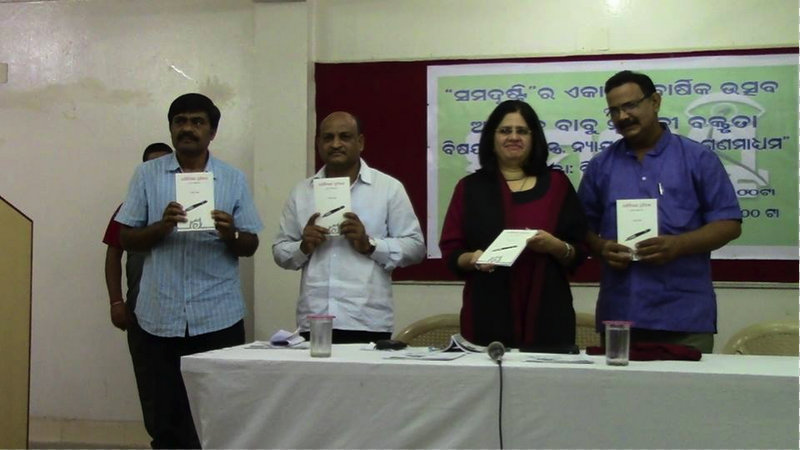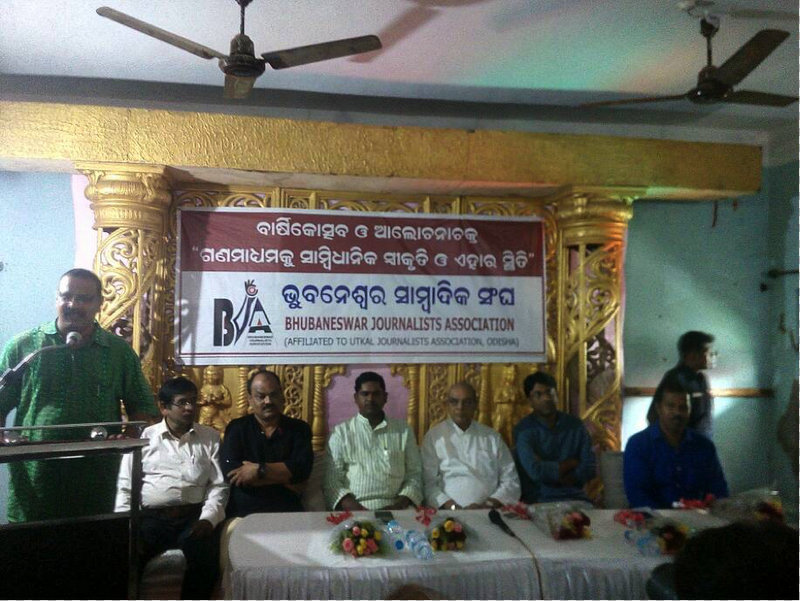
Bigneshwar Sahu
Name of Fellow: Bigneshwar Sahu
Genre: Journalism
Area of Work: Ganjam, Bhubaneshwar districts of Odisha.
Bigneshwar Sahu hails from Ganjam district and is a senior journalist from Odisha. His work primarily concerns the issues of farmers and their plight. He also focuses on deficit prices of crops and changing pattern of cropping in Samadrishtri magazine. Through his articles, he is consistently raising the issues of violation of farmers rights, values of secularism, equality and justice.
Born in a political family, he witnessed various rural problems as people used to come to his father seeking solution to their issues. This experience in his childhood made him realise the importance of staying connected with people.
During his childhood, he had traveled hundreds of villages meeting people and understanding their issues. In his extensive travels and as people used to come to his house, he realized the most of the community members were peasants or agricultural labours.
Understanding peoples’ issues, he started to work with people and he describes that he has been involved in social work since his childhood.
 His father’s involvement in left politics, especially with farmers organization — All India Kisan Sabha— made him feel even closer to the farming community and their issues.
His father’s involvement in left politics, especially with farmers organization — All India Kisan Sabha— made him feel even closer to the farming community and their issues.
As he himself also belongs to a farming family and having witnessed various natural calamities, he further developed deep understanding about the plight of the poor and the peasants.
As a child he was greatly fascinated by newspapers. Even when he hadn’t learnt letters, he would hold the Samaj, a daily newspaper of Odisha, and pretend to read it. His family members noticed this and when he learnt to read, his father would ask him to read aloud the newspaper. He would read the stories concerning the issues of the poor and the peasants. This continued even in his high school days, as he used to collect the daily newspaper and read to others during the library period. His teachers gave him the responsibility of collecting the newspaper and reading it to other students as well as other villagers.
This habit made him understand that writing was a mean to portray peoples’ real issues to the society and stay connected with the people, both with the reader and the subjects he would later write about. During this period, he would remember how people would narrate their ordeal to his father and how women would tell his mother the problems they faced and he would think that those stories were crucial for the society to learn about.
In 1988, he published his first article about science in the Dharitri newspaper as a science student and he kept contributing in the daily during his post-graduation.
Being a science student and having interest in environment, he would study environment related articles and would write about the stories to either the editors or writers commenting on the articles. This habit of writing letters made him well acquainted with journalistic writings.
As a fulltime journalist, his first assignment was with the Dalton Publication in Chennai from 1993 to 1996. Then he joined Anupam Bharat in 1996 and was posted in Berhampur where he worked for one and half years. He also worked with the Samvad, now a leading Odia daily, more than one year. Then he went to the Dainik Asha, a leading nationalist newspaper from Odisha, premier to the Samaj. However, in 1999, when super cyclone devasted Odisha, the newspaper had to stop its operations for around five months. Following this, in 2000, he joined Satabdi and simultaneously, he used to contribute to Green Nobel winner Prafulla Samantra’s Swabhimaan as a translator. After that since 2005, he has been working with Samadrishti, a crowd funded, peoples’ issue focused fortnightly published from Odisha.
Bigeshwar is highlighting justice, equality, fraternity, and secularism through his rreporting as well as organization various discussion sessions with journalists. In his writings on farmers’ issues, he is encompassing Constitutional value of justice for the peasants.
